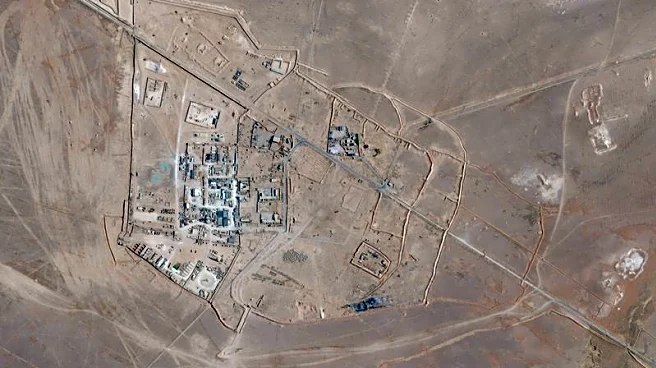What's Happening?
U.S. District Court Judge Karin Immergut is considering whether to issue a temporary restraining order against President Trump's deployment of the Oregon National Guard in Portland. The hearing involved contrasting views on the nature of protests near the Immigration and Customs Enforcement building. Eric Hamilton from the U.S. Justice Department argued that the protests posed a persistent threat, citing police reports of energized crowds. Conversely, attorneys for the city and state presented evidence of smaller, subdued protests, questioning the necessity of federal intervention. Judge Immergut expressed skepticism about using a social media post as a basis for presidential action, highlighting the need for substantial evidence.
Why It's Important?
The decision on deploying the National Guard in Portland carries significant implications for federal authority and local governance. It raises questions about the balance between maintaining public order and respecting civil liberties. The case could set a precedent for how federal troops are used in domestic situations, impacting future policy decisions. Stakeholders such as local governments and civil rights groups are closely monitoring the outcome, as it may influence the dynamics of federal-state relations and the handling of protests nationwide.
What's Next?
Judge Immergut is expected to issue her ruling soon, which will determine whether the National Guard deployment proceeds. The decision could prompt reactions from political leaders and civil society groups, potentially leading to further legal challenges. If the restraining order is granted, it may encourage other cities to contest similar federal actions, shaping the discourse on federal intervention in local matters.
Beyond the Headlines
The case highlights broader issues of executive power and the role of social media in governance. It underscores the legal and ethical considerations of using military forces for domestic purposes, particularly in protest situations. The outcome may influence public perception of government transparency and accountability, affecting trust in political institutions.










